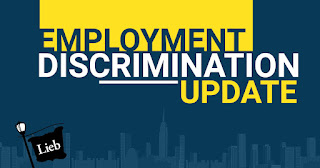Discrimination in employment is illegal throughout the United States and in certain states, like New York, there are even greater protections, rights, and damages available to victims.
Whether you were discriminated against in your workplace by your boss (owner / supervisor / manager), a co-worker, a vendor, a client / customer / patron, a Professional Employment Organization (PEO) / temp agency, or a franchisor, you are entitled to compensation. This is true wherever the discrimination occurred (at the office / zoom / conference / meeting/ holiday party) so long as you were fulfilling your work responsibilities when it happened. This is often even true whether you are an employee, domestic worker or independent contractor. This is even true if the discrimination was unintentional or caused by the perpetrator's implicit biases.
Anti-discrimination rights and protections entitle victims to sue for compensation if discrimination occurred because of your protected status / protected class, which statuses / classes vary throughout the United States, but may include your race, ethnic background, visible traits (hair texture, hairstyle, donning of religious garments or items), color, national origin, citizenship status, alienage status, immigration status, lawful source of income (subsidy recipient status), occupation, religion, creed, marital status, partnership status, sex, gender, sexual orientation, gender identity or expression (transgender status), domestic violence victim status, stalking victim status, sex offense victim status, familial status, pregnancy, presence of children, handicap (disability), age, military status, uniformed service, veteran status, first responder status, arrest record, and sealed conviction record.
The law prevents hiring managers from changing available compensation, wages, rates of pay, hours or other terms and conditions, or availability of, employment based on your protected class status. Job listings can't be discriminatory on their face and in places like NYC, wage transparency is required when jobs are advertised. Plus, wages must be substantially equal between the genders.
Employment discrimination laws apply beyond hiring, where firing / discharge / layoffs cannot be motivated by discrimination either. Speaking of termination, be warned that severance agreements generally waive your anti-discrimination rights so don't sign them if you think that you have a claim until you speak to your lawyer.
Most importantly, workplace discrimination laws protect workers while they are on the job where seniority or other privileges of employment cannot be influenced by discriminatory animus. Stated otherwise, sex can't be traded for job benefits and no one should experience a hostile environment where they are treated inferiorly to someone else because of their protected class status. The old boys club is over and we now exist in a meritocracy.
To get this message across, many places, like NYS, require employers to provide anti-discrimination trainings, policies, and complaint forms to employees/ independent contractors.
Beyond discrimination laws preventing employers from treating victims inferiorly, employees who are handicapped / disabled are also entitled to receive reasonable accommodations (change to policies / procedures / rules) and reasonable modification (change to structure) so that you can enjoy equal employment opportunities. Plus, if you are a disabled employee, your actual diagnosis need not be fully revealed and can remain confidential when you seek such an accommodation / modification. The most common handicap / disability cases that we see involve job task changes, reserved parking, modified work areas, and other failure-to-accommodate cases. When it comes to handicapped / disabled people, it's all about providing access.
The same is true for religious accommodations. Simply put, unless its an essential job function or causes your employer an undue hardship, your employment opportunities should not be denied for religious observance. The most common religious accommodation that we see are flexible schedules, because your holidays or high holy days may not be the same as your employers, and dress code flexibility so you can wear the appropriate attire to respect your belief system.
Don't be afraid to speak-up. If you are advancing an anti-discrimination right, you are protected from retaliation. Even if it is ultimately found that you were not discriminated against, you can nonetheless be compensated for facing unlawful coercion, intimidation, threats, or other types of interference with your anti-discrimination rights. This is not just true if you are advancing your own rights, it also applies if you are an ally who is aiding and/or encouraging someone else to exercise their rights to be free from discrimination.
Title VII, the Americans with Disabilities Act, and other state / local anti-discrimination laws make work available to everyone without stigma, loss of dignity, or other harms. If you are a victim, you can recover compensatory damages (being made whole with emotional distress damages, back-pay, front-pay and/or reinstatement), punitive damages (punishment damages), and your attorneys' fees. The perpetrator can lose their license (if licensed), be required to take trainings, and be ordered to stop their offensive behavior. There are fines and more. Discrimination is wrong and must be stopped.
Attorney Advertising.
